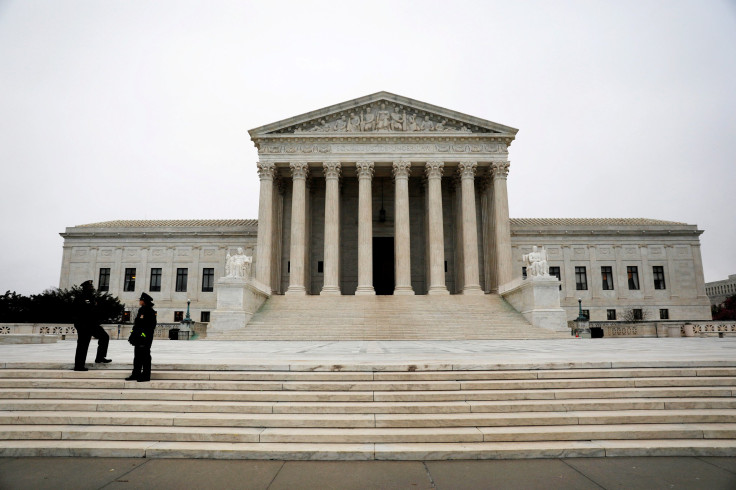
The U.S. Supreme Court recently found there are virtually no constitutional limits on the federal government's power to bar non-citizen spouses of American citizens entering the country as part of the hotly contested court case Department of State v. Muñoz. The decision may set a detrimental precedent for migrant families seeking to reunite with their loved ones, a new analysis by Slate argues.
The case centers on Sandra Muñoz, a U.S. citizen whose husband, Salvadorian Luis Asencio-Cordero, was barred from entering the U.S. to come live with her because U.S. consular officers claimed he had ties to the MS-13 criminal drug gang.
Muñoz then filed a lawsuit claiming that, given the constitutional right to marriage was implicated, the State Department was at the very least required to reveal the evidence that supposedly proved her husband's connection to the gang.
The wife eventually won the U.S. Court of Appeals for the 9th Circuit, which ruled that she was entitled to a meaningful explanation for the denial within a reasonable period of time. However, the Biden administration sought further review, putting it at the Supreme Court's doorstep, which later reversed the lower-court's decision.
Some consider the decision to be a setback for those advancing the constitutional rights of immigrants and their American family members more generally, as the decision rules that spouses have no right to any explanation as to why their partners have been denied entry, even when the decision forecloses the family's opportunity to unite in the U.S., Slate says.
At the same time, Slate analyzes that the ruling may discourage many families from coming forward to legalize their status, since Asencio-Cordero was already in the U.S. living with his wife and child before the couple applied for lawful residence. Immigration advocate leaders agree.
"This is a disheartening decision that strips U.S. citizens of the ability to challenge an erroneous denial by a consular officer in a court of law," Kelli Stump, President of the American Immigration Lawyers Association (AILA), wrote in a recently published statement.
"Although hopefully not the case, this decision could further embolden individual, non-attorney consular officers to act erratically as it strengthens the doctrine of nonreviewability. This lack of due process could unfairly deny many U.S. citizens the opportunity to live in this country with their spouses and will result in the unnecessary family separations or subject the U.S. citizens to arbitrariness of the immigration laws of other countries," she continued.
Interestingly, Muñoz's decision, which came as a result of the Biden administration's request to the Supreme Court, came the same week that President Biden announced a new policy to protect undocumented spouses of U.S. citizens from deportation, considered to be one of the most liberal policies regarding immigrants.
© 2024 Latin Times. All rights reserved. Do not reproduce without permission.







